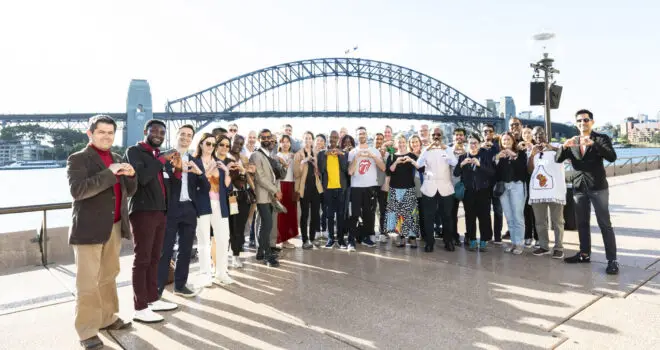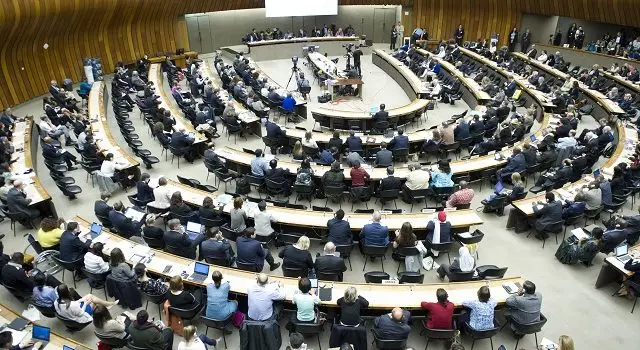On 8 October, the World Heart Federation convened the first of our four-part Heart Talks webinar series, challenging public health experts from policymaking, international organizations, academia, public health, and the private sector to look beyond the doom & gloom into the future of future of CVD & NCD management.
Hosted by Prof. Tom Gaziano and Sir George Alleyne, and moderated by The Lancet Editor-in-Chief Richard Horton, the webinar explored what the combined forces of COVID-19 and non-communicable diseases have meant for the health workforce, and ended with powerful pitches to world leaders about how the lessons from the pandemic can be applied to achieve better healthcare around the world.
You can watch the full webinar recording and get inspired to action with our favourite Heart Talks quotes:
Richard Horton, The Lancet: “The global crisis that we are facing is not actually due to a simple pandemic. It is due to a syndemic, a synthesis of two epidemics – one epidemic of SARS COVID 2 but a second epidemic of non-communicable diseases on a background of poverty and inequality. It’s the most vulnerable people in our society living with chronic disease that are particularly at risk of morbidity and indeed mortality from contracting this virus. How we respond to the threat of non-communicable diseases and specifically cardiovascular diseases and the risk factors of cardiovascular disease will determine the outcome of this global emergency.”
Tom Gaziano, World Heart Federation: “Presidents, prime ministers need to remain committed to innovative ideas and to delivering care, and recognizing that it’s not just the specialists – the doctors, the ICU doctors – but it everybody down at all levels of community health work and the public health officials that needs support and we need to find new ways to bring them together.”
Jim Campbell, World Health Organization: “Public opinion and the voters will judge, madam or sir, on which side of history you are on. Did you protect the vulnerable from COVID, did you invest in health, education or jobs? Which side of history do you wish to be?”
Lilian Mbau, Kenya Cardiac Society: “We cannot have an economic growth and a productive population if we don’t invest in health. We need healthy people who can be productive and contribute to the economy. We absolutely need to invest in health, to increase financing to health.”
Taskeen Khan, World Health Organization: “You’ve seen the COVID pandemic bring the healthcare system to its knees. Can you imagine that scale of pandemic for cardiovascular diseases, for hypertension? Know that investment in the health system and infrastructure for the NCDs is critical to avoid you being flat out on the ground.”
Pascal Michon, Sanofi: “The coronavirus is bringing into clear focus the interdependencies created by a globalized world. The most urgent priority is to contain the pandemic as quickly as possible but the ultimate aim is helping to reverse the course of chronic diseases.”
Pamela Cipriano, International Council of Nurses: “Make sure we take care of our workforce. Right now that means keeping them safe and providing the equipment that they need, but in the future it mean investment in jobs and the education of those individuals and making sure we are equipping that workforce to be able to provide all of the preventive services because that’s what the people need.”
Rachel Wanjiku, Medical Officer and NCD Champion, Kitui County, Kenya: “Moving forward, I’d like us to train and employ more health workers, improve the infrastructure and resources in the health facilities, provide an environment to support the mental health of our healthcare workers, and let the renumeration of workers be adequate, timely and without political interference and let us ensure that we empower primary care structures.”
Sir George Alleyne, PanAmerican Health Organization: “Post COVID, having learnt the lessons, some things will be put in place that will be relevant for cardiovascular diseases. Much of the acceleration of training, the logistics, the tracing and testing, are applicable to and we hope post-COVID will be applied to the management of cardiovascular disease.”


